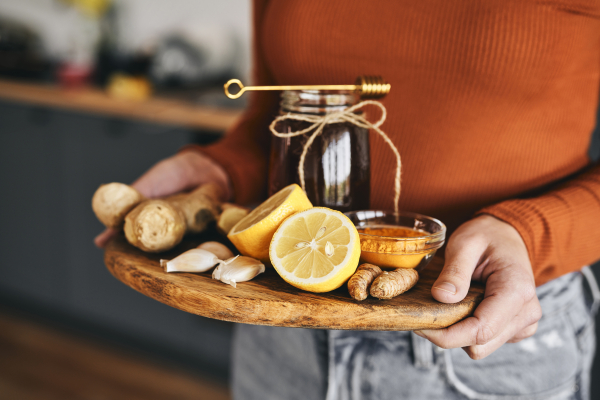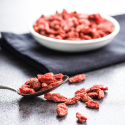- Europa
-
- Amstetten(7)
- Bad Schallerbach(1)
- Baden(4)
- Berg(1)
- Braunau am Inn(5)
- Bregenz(3)
- Bruck an der Mur(1)
- Graz(4)
- Hartberg(1)
- Innsbruck(5)
- Kemmelbach(1)
- Kitzbühel(4)
- Klagenfurt(5)
- Krems an der Donau(1)
- Kufstein(5)
- Leibnitz(1)
- Lienz(1)
- Liezen(1)
- Linz(5)
- Oetz(1)
- Punitz(1)
- Radstadt(1)
- Salzburg(5)
- St Polten(2)
- Steiermark(1)
- Steyr(1)
- Steyregg (1)
- Traun(3)
- Vienna(26)
- Villach(5)
- Völkermarkt(1)
- Wels(5)
- Wien(1)
- Wiener Neustadt(4)
-
- Aalst(1)
- Aarschot(2)
- Affligem(1)
- Anderlecht(5)
- Antwerp(11)
- Antwerpen(1)
- Arlon(6)
- Ath(2)
- Aubange(5)
- Bastogne (2)
- Blankenberge (1)
- Bruges(5)
- Brussels(15)
- Charleroi(5)
- Deinze(3)
- Dendermonde(1)
- Diest(2)
- Etterbeek(5)
- Geel(1)
- Genk(5)
- Gent(6)
- Geraardsbergen(1)
- Grimbergen (2)
- Hasselt(5)
- Heusden- Zolder(2)
- Ieper(1)
- Izegem(1)
- Knokke(4)
- Kortrijk(2)
- La Louviere(2)
- Leuven(5)
- Liege(4)
- Limburg(4)
- Lommel(1)
- Mortsel(1)
- Oostende(1)
- Turnhout(1)
-
- Chelyabinsk(1)
- Dubna(4)
- Gelendzhik(1)
- Irkutsk(1)
- Kaliningrad(1)
- Kazan(4)
- Krasnodar(3)
- Krasnoyarsk(1)
- Maykop(1)
- Moscow(50)
- Nizhny Novgorod(4)
- Novosibirsk(1)
- Omsk(1)
- Penza(1)
- Rostov-on-Don(2)
- Saint Petersburg(13)
- Samara(1)
- Saratov(1)
- Serpukhov (2)
- Sevastopol(3)
- Sochi(5)
- Stavropol(1)
- Surgut(1)
- Tyumen(2)
- Ufa(2)
- Vladivostok(3)
- Yekaterinburg (11)
-
- Alicante(8)
- Barcelona(113)
- Benalmadena(1)
- Benidorm(7)
- Castellón de la Plana(1)
- Denia(1)
- Estepona(1)
- Fuengirola (3)
- Ibiza(49)
- Jerez de la Frontera(1)
- Lanzarote(1)
- Las Palmas de Gran Canaria(5)
- Madrid(57)
- Malaga(9)
- Marbella(48)
- Murcia(1)
- Oviedo(1)
- Palma de Mallorca(48)
- Puerto Banus(3)
- Seville(1)
- Tarragona(1)
- Tenerife(7)
- Torrevieja(3)
- Valencia(9)
- Vigo(1)
- Zaragoza(1)
- Worldwide
Antioxidants: A Shield Against Aging and Disease
 In today's fast-paced world, the benefits of antioxidants are frequently discussed. These powerful substances can slow down the aging process, improve our health, and enhance our beauty. Let’s delve deeper into why antioxidants are essential and which foods are their best sources.
In today's fast-paced world, the benefits of antioxidants are frequently discussed. These powerful substances can slow down the aging process, improve our health, and enhance our beauty. Let’s delve deeper into why antioxidants are essential and which foods are their best sources.Free Radicals: Too Much of a Good Thing
Every second, countless biochemical reactions occur within our bodies. These reactions, essential for metabolism, involve oxidation and its counterpart, reduction.
Free radicals, molecules with an unpaired electron, are always present in our cells. While they are crucial for some cellular processes, an excess can be harmful. When there are too many free radicals, they react indiscriminately with other molecules, leading to oxidative stress, which can damage cells.
Research shows that free radicals attack the 70 billion cells in our bodies thousands of times daily. If our natural defense mechanisms are robust, we can mitigate the damage. However, factors such as stress, smoking, alcohol consumption, and UV exposure can overwhelm these defenses, amplifying the damage.
When free radicals harm blood vessel cells, it can lead to atherosclerosis; if they damage eye cells, cataracts may develop; brain cell damage can impair memory and attention. If they alter DNA structure, the consequences can be severe, disrupting enzyme and hormone production, accelerating aging, and potentially leading to diseases like Alzheimer's, rheumatism, cancer, diabetes, skin disorders, vision problems, and joint issues.
Combating Free Radical Damage
Our bodies have their own defense mechanism against free radicals: the antioxidant system. Antioxidants neutralize or inhibit the harmful effects of free radicals, essentially acting as "traps" that redirect them to beneficial metabolic pathways.
Scientists believe that among the many antioxidants found in foods, the most important are provitamin A (beta-carotene), vitamins C and E, and the trace element selenium.
Boosting Antioxidant Protection with Food
To enhance our antioxidant defense, we need to consume foods rich in these essential substances. This means incorporating plenty of vegetables, leafy greens, berries, and fruits into our diet.
Provitamin A (Beta-Carotene)
Found abundantly in carrots, blueberries, pumpkin, broccoli, parsley, peaches, and apricots.
Vitamin C
Rich sources include rose hips, blackcurrants, most other berries, citrus fruits, sea buckthorn, kiwi, spinach, and Brussels sprouts.
Vitamin E
Primarily found in vegetable oils, nuts, seeds, legumes, sprouted wheat, soy, and fish oil.
However, not all antioxidants are easily obtained from food. For example, selenium is challenging to acquire in adequate amounts through diet alone. Many regions, including ours, have soil deficient in this vital trace element. Hence, even with a varied diet of meat, dairy, grains, vegetables, and fruits, meeting our selenium needs can be difficult.
This is why it is crucial to supplement our diet with these essential antioxidant combinations.









